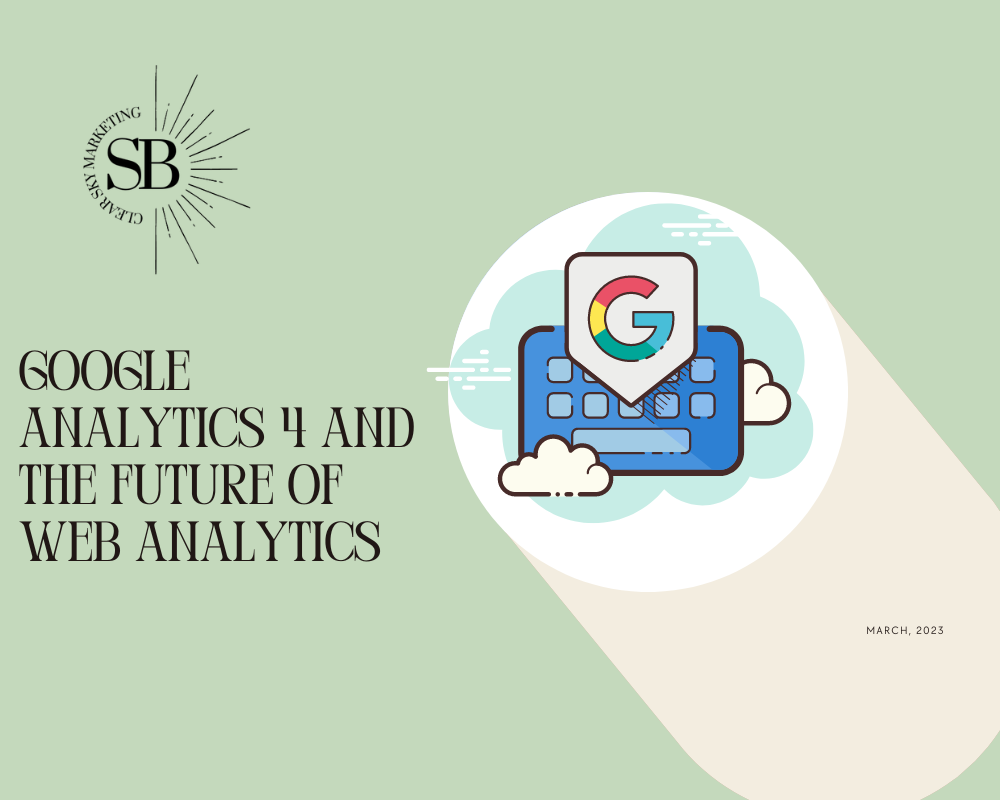Web analytics provides marketers with the necessary information to make informed decisions to accurately communicate and deliver value to desired web users. Google is making major strides regarding web analytics with the introduction of GA4 (Google Analytics 4), which will be replacing UA (Universal Analytics) in July of this year as the platform will no longer be tracking incoming user information. It is extremely important to take note of this new change within the digital marketing world and consider the importance of making the transition from UA to GA4 because time is running out.

As a Marketer One Thing You Must Accept is CHANGE
This may not be much of a surprise but more change is happening within the world of digital marketing, which further highlights the importance of making the transition from UA to GA4. Not only is Google going to stop running the UA platform in July, but the introduction of this new and updated platform is also necessary to stay current as we are fast heading toward a cookieless future. Cookies have provided marketers with necessary consumer behavior information, including search history, product purchases, IP addresses, and geographic locations. Major browsers will soon be blocking third-party cookies and marketers will need to find a new way to acquire this pertinent information regarding consumers. Google’s introduction of GA4 will provide a solution to this daunting problem.
What is a Cookie and Why do We Need to Get Rid of Them?

Third-party cookies are a marketer’s favorite snack as they give marketers the ability to analyze users’ browsing activity, providing them the necessary tools to understand and effectively advertise to current and potential consumers, increasing conversions and sales. If third-party cookies are good for marketers, why are we getting rid of them? With the constant technological advances, a fear that web users continue to face is privacy invasion. Although third-party cookies have proved to not be dangerous in the sense that they do not infect your computer with malicious viruses or malware many people do not want to be tracked by external parties or more bluntly, “marketers”. Data privacy laws also define third-party cookies as “non-essential,” so of course web users would question their purpose.
The Switch from UA to GA4
GA4 is not only giving marketers what they need but also what web users want. Web analytics functionality needs to adapt to the needs of consumers regarding the risk of privacy invasion and the utilization of third-party cookies. Google has designed GA4 to prioritize the privacy of its users, which can also be seen through the addition of the platforms’ consent mode feature which gives users the ability to choose what information is to be shared with outside sources. Along with keeping the needs of consumers at the epicenter of marketing efforts through GA4 the new software is also giving marketers new features and innovations that improve marketers’ ability to more effectively and efficiently move consumers through the marketing funnel.

Universal Analytics utilizes a session-based model, while GA4 utilizes an event-based platform that allows marketers to track user behavior with up to 50 different parameters. Adding these new features gives marketers a more detailed report on user trends, allowing marketers to expand their knowledge of consumer behavior while simultaneously improving the consumers’ purchase journey. Another improvement of implementing GA4 is the flexibility and accessibility associated with the software in comparison to the previously popularized UA platform. An interesting difference between the two platforms is the use of identity spaces. The various identity spaces that are accessible to marketers while using GA4 include User ID, Google Signals, and Device ID. The ability to take into account all three identity spaces allows the software to create a single user journey, and only accessing one identity space makes each device look like a new person. More information regarding the new features of GA4 can be found within Google’s new course!

The Time for Change is NOW
Take the time to start your Google Analytics 4 account to experience and utilize the new features that will work to reframe the flexibility and accessibility of digital marketing, and of course because you only have six more months until Universal Analytics comes to an end so you might as well start now.

